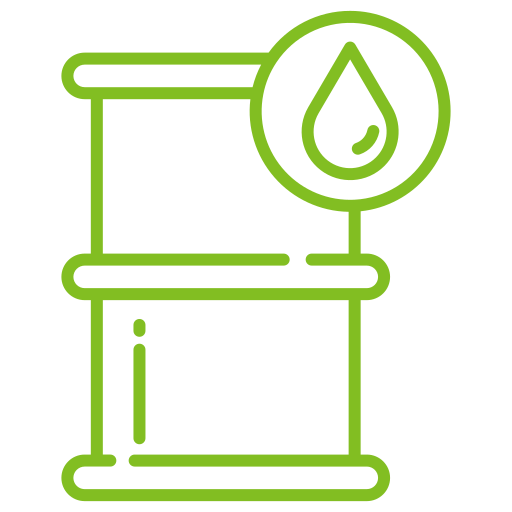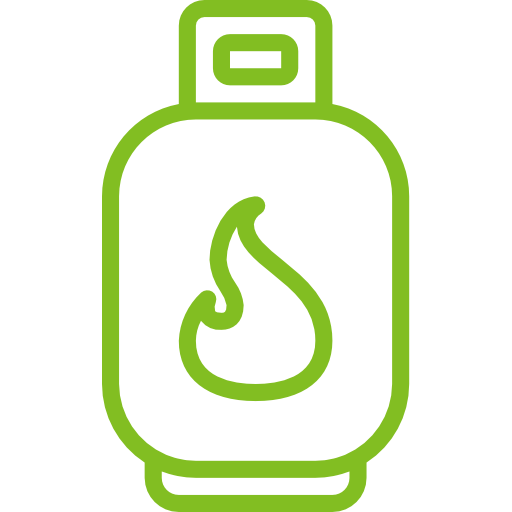



Carbon black, a vital industrial material, has a rich history dating back to the early 20th century. Initially, it was produced by the partial combustion of hydrocarbons and quickly found widespread use in the automotive industry due to its ability to reinforce rubber. This unique material provides tensile strength, durability, and abrasion resistance, making it essential in tire manufacturing. Over time, carbon black’s applications have expanded to various sectors, including plastics, coatings, and inks.
Today, the carbon black industry is evolving, with recovered carbon black (rCB) becoming a viable alternative to traditional carbon black. By recycling and repurposing carbon black through tire pyrolysis, The BioCarburante Company supports the industry’s shift towards sustainability, offering a cleaner, cost-effective substitute for virgin carbon black.

The carbon black market is witnessing significant growth driven by rising demand in industries such as automotive, construction, and electronics. However, environmental regulations are pushing manufacturers to seek more sustainable alternatives to virgin carbon black, leading to the increased adoption of recovered carbon black.
As a substitute for traditional carbon black, rCB offers both economic and environmental benefits. It reduces reliance on non-renewable resources, decreases carbon emissions, and minimizes energy usage. The BioCarburante Company is positioned at the forefront of this trend, providing high-quality rCB that meets industry demands for sustainable, cost-effective materials. The company’s approach not only supports the tire industry but also aligns with broader goals of reducing industrial carbon footprints and promoting a circular economy.
Pyrolysis oil is a versatile, energy-rich fuel oil derived from tire pyrolysis. Comprising 35-45% of the tire pyrolysis output, this oil can be refined and purified for multiple uses. It is particularly valuable in applications such as maritime fuel, power plant fuel, vehicular and stationary engines, and industrial heating. The primary challenge with tire-derived pyrolysis oil is its sulfur content, which can be addressed with additional processing to meet environmental standards. With appropriate refining, pyrolysis oil becomes a viable alternative to conventional fuels, especially in regions that seek to reduce dependency on fossil fuels.
Maritime transportation fuel, power generation, vehicular engines, industrial heating.
Provides a cost-effective, energy-rich alternative to conventional fuels; supports emissions reduction in power generation and industrial processes; adaptable to multiple applications with appropriate refining.
Recovered carbon black is a high-demand material accounting for roughly 30-45% of the pyrolysis output. As an eco-friendly replacement for virgin carbon black, rCB is crucial in the production of rubber goods, particularly tires, as well as paints, coatings, and plastics. This recovered material is also suitable for high-performance applications, depending on the level of post-pyrolysis treatment. The BioCarburante Company utilizes state-of-the-art purification techniques to ensure that the rCB produced is of premium quality, aligning with industry standards and enhancing its value in the market.
Tire and rubber manufacturing, paints, industrial coatings, plastics.
Reduces reliance on virgin carbon black, minimizes energy consumption, supports circular economy goals, and decreases carbon emissions across manufacturing sectors.
Tires contain approximately 20% high-grade steel wire, which can be extracted during the pyrolysis process. Once recovered, the steel wire is either recycled through smelting processes or sold for use in construction materials, where it adds strength to concrete. This process not only supports sustainable resource recovery but also provides a cost-effective solution for industries that rely on steel as a raw material.
Construction materials (concrete reinforcement), smelting for new steel products.
Recyclable resource that enhances concrete strength and durability, reduces need for new raw materials, contributes to sustainable construction practices.
While not a direct product for resale, synthetic gas (syngas) generated during pyrolysis can be harnessed as an internal fuel source, contributing to the energy neutrality of The BioCarburante Company’s operations. This gas helps lower overall operational costs by powering parts of the pyrolysis process itself, further demonstrating the company’s commitment to energy efficiency and environmental responsibility.
Internal fuel for pyrolysis processes.
Promotes energy neutrality, reduces operational costs, supports sustainable tire pyrolysis by minimizing waste.
The BioCarburante Company (TBIOCC) represents a significant advancement for both the industry and the environment. Our innovative process transforms end-of-life tires into valuable resources, addressing a major waste challenge while reducing environmental impact. By converting these tires into usable products, TBIOCC not only promotes sustainable waste management but also contributes to a circular economy. Our solution enhances industry profitability with a high ROI, all while minimizing the ecological footprint and supporting global sustainability goals. This dual benefit of economic and environmental impact makes TBIOCC a pivotal force in driving positive change in both sectors.
Copyright © 2024 The BioCarburante Company | Designed by Digital Roots Media